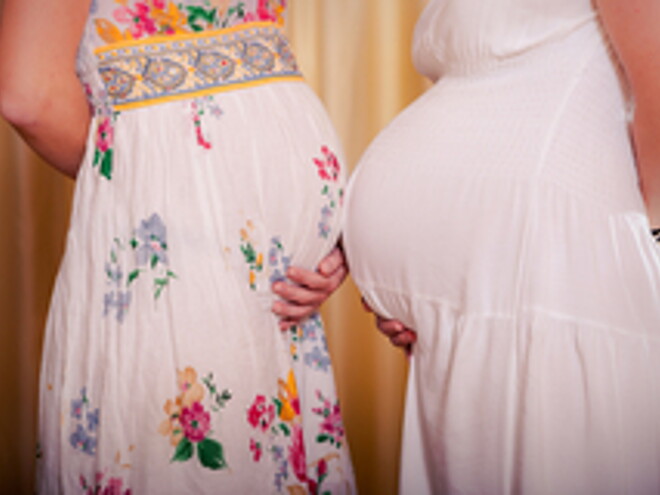
Risks Of Multiple Pregnancies
Pregnant With Twins: Potential Risks
Being pregnant with twins, triplets or other multiples is a happy exciting event for many women. But of all types of pregnancies, multiple gestation is considered high risk, as it can expose an expectant mother and her fetuses to several complications, including:
- Preterm Birth: The rate of premature births increases by 60% among twins and multiple babies (born before week 37 of gestation). Premature babies are usually weak, tiny and need some help with breathing and breastfeeding.
- High Blood Pressure: A mom-to-be of twins is more likely to develop high blood pressure, which can increase her risk of placental abruption early pregnancy.
- Anemia or Iron Deficiency.
- Congenital Malformations: Twins and multiples are more likely to be born with congenital anomalies, like neural tube defects, heart and gastrointestinal abnormalities.
- Miscarriage.
- Cord Entanglement or Compression.
- Abnormal Amounts of Amniotic Fluid: This condition is very common in multiple gestations, particularly for twins sharing one placenta.
- Gestational Diabetes: Developing two placentas may increase the resistance to insulin, and the risk of occurrence of gestational diabetes.
- C-Section: The abnormal position of fetuses inside the womb may increase the risk of c-section.
- Postpartum Bleeding: The larger extent of the placenta and the overextended uterus in multiple pregnancies can put an expectant mother at risk of bleeding after delivery.
- Twin-to-twin Transfusion Syndrome: This condition is pretty rare yet 13% possible in twins sharing one placenta.
So if you’re pregnant with more than one baby and fear the potential complications, we advise you to take good care of your daily diet and lifestyle, being the major reasons behind multiple pregnancy complications; don’t miss any of your health visits and keep on reading articles about pregnancy, childbirth and their unusual symptoms.
Read More: What Is A High-Risk Pregnancy And How To Manage It?

